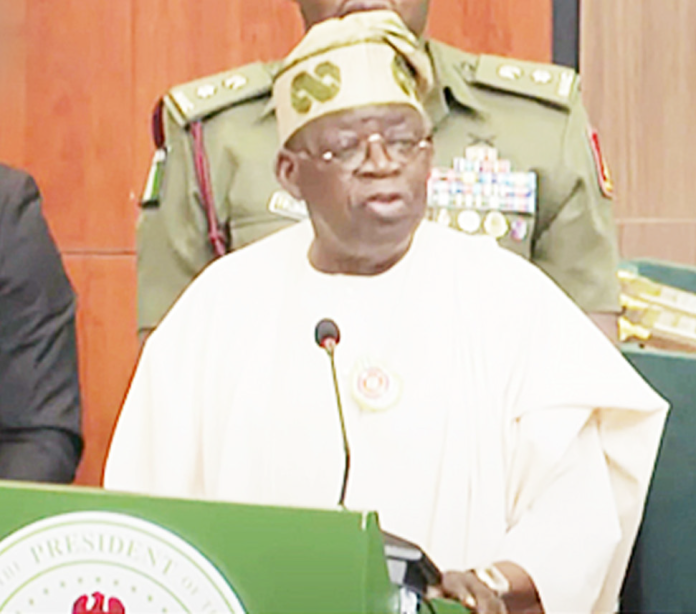AS Nigerians ushered in 2025 with cautious optimism, President Bola Tinubu’s New Year message made matters worse, lacking clarity and the pathway to overcoming the challenging times. Similar to past broadcasts by the president, it was cloaked in sundry rhetoric and looking more of a campaign manifesto, as it was filled with the usual promises, for an administration that has been in the saddle for nearly two years.
The past year was gruelling for Nigerians for some reasons. Inflation skyrocketed to an all-time high, essential commodities became unaffordable, while the removal of fuel subsidy further exacerbated economic hardships. In such a context, a New Year message is not merely a ceremonial gesture but a critical opportunity to instil hope and confidence by outlining tangible solutions to pressing issues. Unfortunately, the president’s speech offered little in this regard.
The president’s pledge to reduce inflation from 34.6 percent to 15 percent may be commendable, but it is devoid of specifics. How does he intend to achieve this ambitious target? Will it involve tightening monetary policy, which risks stifling the already beleaguered manufacturing sector? Or does the plan hinge on boosting agricultural output? If agriculture is the focus, addressing the rampant insecurity across the country, particularly in the North and Middle Belt regions, which has displaced farmers and disrupted food production, must be prioritized.
Without a clear roadmap, the promise of taming inflation might just be illusory. Nigerians deserve to know the government’s strategies, timelines, and metrics for success. Ambiguity only fuels scepticism and deepens the chasm between the government and the governed.
Meanwhile, the president’s announcement of a Youth Confab in the first quarter of 2025 raises questions about its necessity. The challenges faced by Nigerian youth such as unemployment, inadequate access to quality education, and limited opportunities for skill acquisition—are in the public domain. It does not require a conference to take a decisive action on the issues.
Instead of wasting resources to organize a confab, the government should channel such funds into initiatives that directly address youth empowerment. Scholarships, vocational training programs, and job creation schemes would yield far more significant benefits. With the economic morass faced by the country, every naira should be spent wisely; as such, a youth conference is somewhat a luxury Nigeria cannot afford.
On the other hand, the removal of the fuel subsidy which a tiny segment of the populace lauds as an inevitable reform, has plunged many Nigerians into deeper poverty. The soaring cost of fuel has a cascading effect, driving up transportation and food prices.
The president’s speech acknowledged the high cost of living but failed to propose measures to mitigate these challenges. A comprehensive strategy to cushion the effects of subsidy removal, such as targeted subsidies for vulnerable populations or incentives for alternative energy sources, is urgently needed. Similarly, the floation of the naira continues to retard economic growth. The naira in a pathetically prostrate statechas made imports more expensive, thereby fueling inflation.
Strengthening the naira by bolstering foreign reserves and encouraging local production should be a priority. Attempts to Ignore these foundational issues will only prolong the economic malaise and exacerbate the misery of the hapless citizenry.
Without resort to equivocation, Nigerians are not looking for lofty promises or mere rhetoric delivered as a speech. They are yearning for practical solutions to everyday problems: affordable food, stable electricity, affordabl healthcare, and quality education. Unfortunately, the president’s speech missed an opportunity to connect with these fundamental needs.
Nigerians have shown remarkable resilience in the face of adversity, but resilience has its limits. The alarming reports of people losing their lives in scrambles for food accentuate the urgency of addressing poverty and inequality. Concrete actions, not hollow words, are needed to restore dignity and hope to millions of Nigerians.
Having plunged the economy in disarray with contentious policies, getting it out demands more than rhetoric; but requires deliberate and sustained action. Tinubu said it himself that Nigeria’s challenges are significant, but are not insurmountable. It is time to walk the talk with visionary leadership, conscientious governance and commitment to the welfare of all citizens, so that the brighter future we yearn for in 2025 would become a reality.


